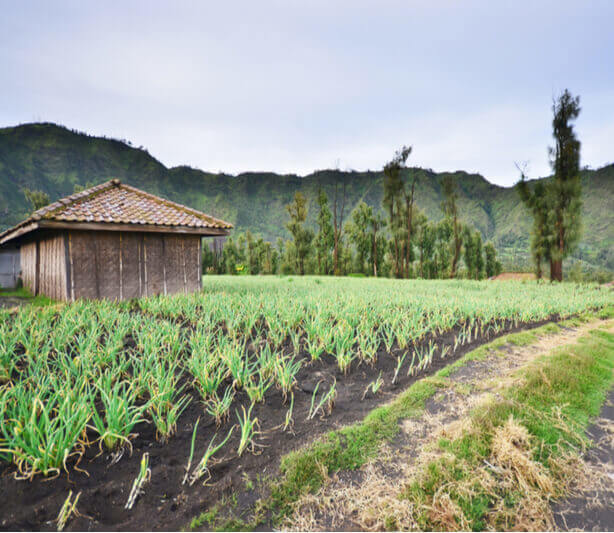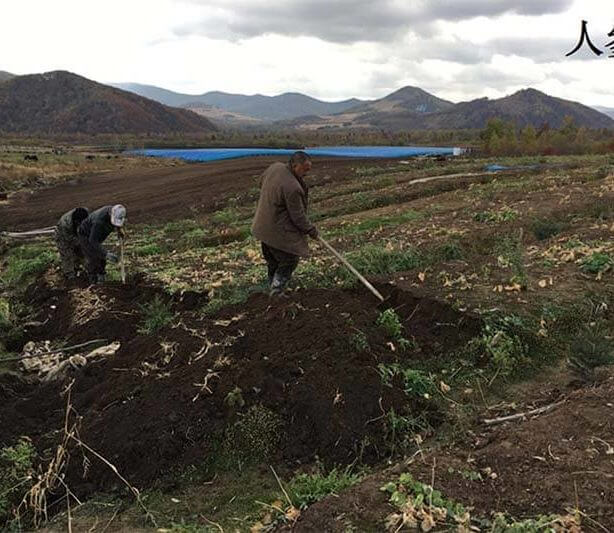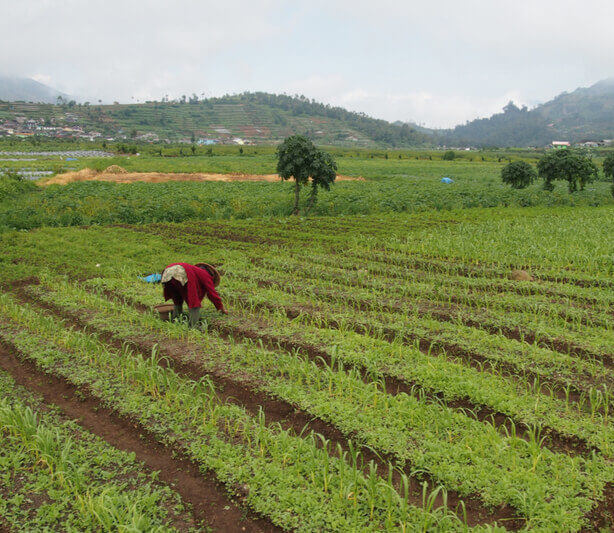Herbs have been celebrated for their therapeutic properties for thousands of years. In that time, the world has undergone innumerable transformations, and both the natural environment and the methods of herb cultivation have changed.

Manufacturing
Sustainability
As a natural products manufacturer, KPC is committed to responsible stewardship of our planet. For over 100 years, we have remained true to our philosophy: “Preserving Nature’s Way.” We continuously strive to minimize our environmental impact and preserve our quality of life for future generations – a responsibility we hold genuinely. Being a sustainable manufacturer of Traditional Chinese Medicine supplements starts with our sourcing practices. We are conscientious about the raw materials we use and the suppliers we partner with.
Our manufacturing processes are designed not only to ensure our herbs are authentic and free of contaminants, but also to minimize waste. We update our technologies and methodologies as necessary to stay at the forefront of responsible manufacturing. KPC’s sustainability journey is ongoing. We will continue to monitor the effect we have on our natural resources and make improvements wherever possible to lessen our environmental impact. We will be relentless in our pursuit of sustainability solutions, because it is what is best for our customers, our communities and our world.
Why Sustainability Matters in TCM
Interest in Chinese medicinal herbs has grown rapidly in recent decades. As the TCM industry expands its reach, the demand for raw materials is also increasing, and suppliers are facing considerable pressure to meet the need. In response, many wild resources are being over-exploited, and cultivated herbs are being raised with untenable farming practices.
This cannot become the norm. The TCM industry must find a way to fulfill present needs without compromising the ability of later generations to fulfill their own needs. A collective movement towards a sustainable future is critical to preserve the long-term viability of people, the planet and the rich traditions of TCM.
We believe that practitioners and patients benefit most when they choose an herbal supplement manufacturer that emphasizes quality and integrity. The safest and most effective products require significant investments and constant due diligence. At KPC, we continue to invest in our physical and human resources and implement the latest sustainability standards to produce quality herbs for our customers and protect our precious planet.

The Complex Evolution of Herb Cultivation
As the availability of natural resources fell behind the rapidly growing demand for Chinese herbs, many farmers turned to unethical methods in order to promote higher yields, abandoning the traditional cultivation methods. Industrialization has given farmers the means to produce ever-increasing amounts of herbs quickly and harvest them before their peak. As a result, there has been a rise in the use of chemical pesticides, fungicides and fertilizers, as well as industry-caused pollution and disregard for soil health.
These practices can damage and dangerously alter the nature of the herbs. Though industrialization makes it possible to keep up with high demand, cultivation should not come at the expense of the safety and integrity of the herbs and the land. Responsible herb buyers must adopt transparent sourcing processes that ensure the quality and long-term health of raw herb populations and protect consumers.
Our Sustainability Objectives
Sustainability is an integral part of KPC’s vision and values. Our environmental initiatives are rooted in the firm conviction that:
- Prioritizing sustainability helps us exceed our customers’ expectations for safer and more ethical products
- Fostering a company culture of sustainability attracts and engages individuals who want to make a difference
- Integrating sustainability into our goals and decision-making reflects our family values and commitment to providing only the highest quality herbs
- Leading the conversation on environmental issues can help set the TCM industry on a path that helps preserve our planet
- The choices we make today can benefit future generations by ensuring TCM traditions continue in a positive way
By reducing our environmental footprint and setting a high standard for sustainability efforts, we are addressing one of the major challenges of our time, strengthening the societal impact of our company and our industry, and creating a better shared future.

Ethical Sourcing and Sustainable Farming Practices
Fortunately, the impact of the rising demand for Chinese herbs hasn’t only been negative. Despite the shift in harvesting methods of large-scale farms, many small-scale family farms hold tradition and authenticity true to their hearts. The rise in demand for Chinese herbs has only encouraged these farmers to improve their crops by employing more sustainable practices and growing a diverse array of produce, while preserving the use of traditional farming methods. These initiatives produce higher-quality herbs while having a positive environmental effect.
Our efforts start from the ground up. KP partners with farmers to grow some of the botanical ingredients we use. We only choose suppliers that meet our unapologetically stringent standards, are transparent about their processes, and have values and beliefs that are aligned with ours.
Adhering to Good Agricultural Practices and Good Handling Practices
Our farmers follow the Good Agricultural Practices (GAP) and Good Handling Practices (GHP) guidelines defined by the USDA. GAP and GHP regulate farm activity to guarantee the quality and uniformity of the finished products. Under these guidelines, farmers voluntarily submit to USDA audits that verify that their crops have been “produced, packed, handled, and stored as safely as possible to minimize risks of microbial food safety hazards.”
KP goes beyond these audit results by testing all raw materials we source before they enter the manufacturing process, regardless of their point of origin. This includes species identification, as well as tests for heavy metals, pesticides, sulfur dioxide, aflatoxins and aristolochic acid — compounds that can be harmful to consumers if ingested. KPC’s customers can feel confident that our products are safe to use and pose no threat to the environment, as our growers handled the herbs properly and protected them from contaminants.
Maintaining Relationships With Suppliers Who Share Our Mission
KP establishes long-term partnerships with farmers who share our mission of providing high-quality herbs while caring for the wider environment. This shared commitment applies to botanical ingredients as well as animal and animal by-product ingredients. KP visits farms regularly to verify that they comply with our comprehensive checklist of farming best practices and our sustainability efforts.
These inspections allow us to confirm that our partners refrain from the use of chemical additives to artificially enhance their production. While these chemicals can increase production by reducing the time it takes to get the ingredients harvest-ready, they can also lower the quality of the herbs and pose potential threats to consumers if ingested. By working directly with farmers who share our values, we ensure that the highest-quality formulas reach our customers.
Protecting Endangered Species and Wild Herb Populations
Using cultivated herbs helps us protect wild herb populations while supporting smaller and family farms. Cultivated herbs grown using sustainable practices and subjected to adequate quality control provide the same benefits as wild herbs, with all of the additional advantages for the environment that cultivated herbs offer.
When we use wild ingredients, we work closely with CITES (the Convention on International Trade in Endangered Species of Wild Fauna and Flora) to ensure they are not endangered species. We reject all use of ingredients that are endangered or will contribute to threatening wild herb populations or wildlife. If an ingredient is deemed at-risk or imminently at-risk, KP uses a sustainable substitute that provides comparable health benefits.
Our species identification process further confirms that our formulas contain the correct ingredients and that none are endangered.

Producing High-Quality Herbal Supplements That Are Good for People And the Planet
Creating a healthier world starts with investing in the health and well-being of the earth. We believe that individuals can move mountains when they put their minds to it, and that ethical businesses can also be instrumental in making a difference.
Continuing to have a positive environmental and social impact is a critical part of KPC’s vision for the future. We are proud of the milestones we’ve met thus far, and excited for what’s yet to come as we carry on this vital work. Contact our team to learn more about how KPC is delivering the highest quality herbal products to customers while benefiting local economies and the environment.
